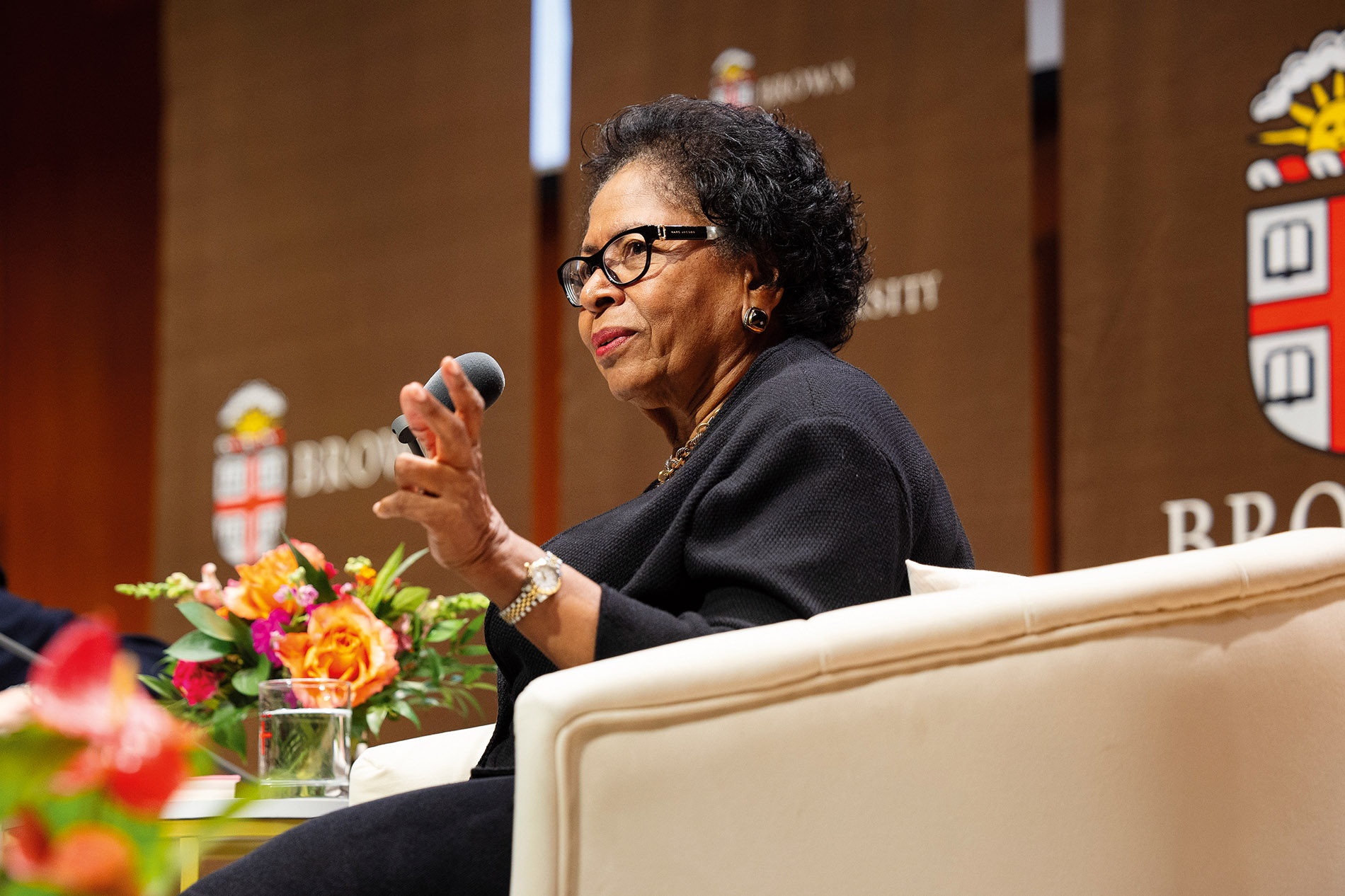Before Ruth J. Simmons became the first Black president of an Ivy League university, she was Ruth Jean Stubblefield of tiny Grapeland, Texas, the 12th child of cotton sharecroppers. Born in 1945, Simmons lived in a clapboard shack with no plumbing and wore clothes made from used flour sacks. There were no books and often barely enough food. Her future looked bleak.
Then, first grade: “I walked into my very first classroom, and [the teacher] treated me as if I was not the country bumpkin that I actually was, but someone with immense potential,” Simmons said in a conversation Sept. 7 with President Christina Paxson at the Salomon Center for Teaching. “She had this quality in her voice that suggested that it was absolutely true.”
In front of a packed audience, Paxson and Simmons discussed Simmons’s recently published memoir, Up Home: One Girl’s Journey. The event came just hours after a celebratory unveiling of the newly named Simmons Center for the Study of Slavery and Justice—a nod to her leading role in the effort to uncover Brown’s historical ties to slavery.
Simmons—who led Brown from 2001 to 2012—still believes that her inspiring first-grade teacher, Ida Mae Henderson, deserves much of the credit for her unprecedented success. Among other lessons, Henderson taught her the power of words as something that was hers to wield and control. From a young age, she learned that speaking confidently could break silences and open doors of opportunity.
As audience members asked questions, Simmons covered personal issues such as imposter syndrome, racial inequality, and identity crisis. One resonating lesson she gave was that “the truth is our trade”—meaning we should try to act truthfully in everything we say and do. At Wellesley, for instance, she deeply appreciated her native-speaker French professor telling her how terrible her spoken French was. Yet he wouldn’t let her quit. “If I had had enough money to go home, I would have left college that day, believe me,” Simmons said. Instead, she hit the language lab. Success: “One day it dawned on me that I was understanding everything in class,” said Simmons, who went on to get a PhD in Romance languages and literature. The experience “enabled me to lose every bit of fear that I had as a student,” she said. Yet truth sometimes comes at a cost, Simmons admitted. When she announced Brown’s intention to reckon with its historical ties to slavery, for example, the national uproar was so intense that there was a police officer outside her house 24/7.
Simmons said she started writing her memoir at Brown and took it up again in 2020, with the murder of George Floyd and “the revival of so much hatred toward different groups in society.” She sensed that young people “needed to hear something about our having been there before, and about how it’s possible to live through those difficult periods and be stronger… as a consequence of dealing with them.”
Toward the end of the presentation, Simmons discussed the recent Supreme Court decision ending race-conscious admissions and spoke of the importance of fighting for diversity, equity, and inclusion at every opportunity. If “universities stand tall in this moment,” she said, they “will have much more impact than almost anything they’ve ever done as a sector.... I want to see student voices rise to the challenge. I want to see university officials rise to the challenge.... We ought to speak truth in whatever circumstances we find ourselves. That can be scary sometimes, but if enough people do it, it’s transformative.”






